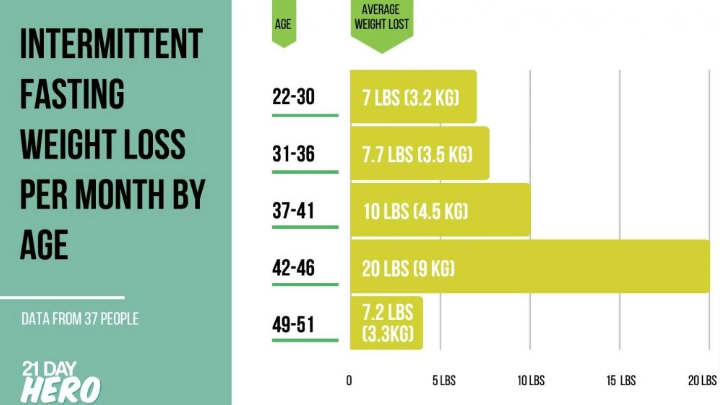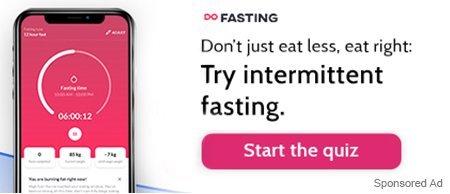What is 18/6 Intermittent Fasting | How to Follow 18/6 Intermittent Fasting | What to Eat in 18/6 Fasting | Benefits | Disadvantages
Intermittent fasting is a diet that has helped many people lose weight and maintain overall health. There are many variations of the fasting diet, but the 18/6 intermittent fasting seems to have a fan following among all. It involves skipping meals for 18 hours and then eating only during a 6-hour window.
What is 18/6 Intermittent Fasting?
18/6 is a fasting plan gives an eating window of 6 hours, and you fast for 18 hours at a stretch in a day. There is no restriction on what you should eat in the eating window, as long as you are consuming it in the eating window.

You can execute an 18-hour fast schedule every day or a couple of times per week. It’s entirely up to you how often you want to repeat this cycle.
It’s easy to implement 18/6 fasting because it doesn’t require you to adjust your eating habits. It allows you to fast in a more flexible way than other fasting or diet regimes.
Sometimes this is referred to as 18:6 Fasting and even “.18/.6” Fasting as well, fyi.
How to Follow 18/6 Intermittent Fasting?
It depends on the time of day you are most comfortable not eating. Some people cannot skip the morning breakfast, so they choose the 6-hour eating slot that includes breakfast and lunch.
Others who wake up late or prefer their dinner can just have lunch and dinner. Depending on your comfort, you can set your 18/6 intermittent fasting meal plan.
So, there isn’t a hard and fast rule on when you should or should not eat. You can customize the plan according to what works best for you. Even though an 18-hour fast in a day might sound crude, it is not that tough to follow since most of the fasting window is covered in the sleeping time.
So, It is better to add a good sleep of seven hours to your routine to avoid hunger cravings. Also, you should try eating foods that make you feel fuller and not bloated. Foods like fresh fruits, fiber-rich veggies, curd, buttermilk, low-fat milk, fish, and lean meat are believed to help avoid bloating.

What to Eat in 18/6 Fasting?
It is important to pay attention to what you eat during eating time, and what is your eating pattern. You should have a diet rich in essential vitamins and minerals. Eating protein, legumes, fruits, vegetables, olive oil, dairy, etc., which are rich in healthy fats, minerals, fiber, complex carbohydrates, and vitamins, is important to maintain a balanced diet.
You can have water, unsweetened and milk-free coffee or tea, or water even during fasting. Some people who aren’t strict in fasting also have low-calorie food items or beverages such as coffee creamers and artificial sweeteners. However, these can induce hunger and make fasting tougher.
You need not specifically worry about how many calories to eat during intermittent fasting 18/6. However, it is best to choose healthy food over processed food, fried snacks, frozen food, and sweetened drinks as they may negatively affect digestion and body metabolism.
For more tips on what to eat when fasting, check our article: What To Eat During Intermittent Fasting: A Full Guide
What to Drink while 18/6 Fasting?
Feel free to drink black coffee, tea, water, and most any zero calorie drink. But be careful of processed drinks with chemical additives, this can negate the fast.
18/6 Fasting and Weight Loss
Research shows that intermittent fasting promotes growth hormones which push the body to use up stored fats, leading to fat-burning. If followed properly, since it is more restrictive, intermittent fasting 18/6 results might show extra weight loss than other simpler fasting plans.
However, there isn’t a clear indicator on whether 18/6 or any time-restricted intermittent fasting plans work better than other calorie-restricting diet plans to lose weight. 18:6 fasting weight loss results will also depend on individual body metabolism.
If you’re thinking about trying intermittent fasting to lose weight, check out – Intermittent Fasting For Weight Loss: 7 Tips For Best Results for all the information you need.
Want to know what results you can expect? See some intermittent fasting results from 18/6 – click HERE.
Also, here is some REAL Data we collected from our community, check out these 1 month weight loss results:


18/6 Health Benefits of Intermittent Fasting
There are many touted benefits of extended night-time fasting, which directly depict 18/6 fasting benefits. Research suggests an overall improvement in health with prolonged fasting.
Weight Loss
Yay! This is the #1 benefit of fasting, weight loss! The first visible 18/6 intermittent fasting results 1 month in should be significant in such a short time, most people who follow this fasting plan experience is weight loss. As indicated in the research studies, the calorie intake is restricted with an 18/6 fast and it improves the metabolic markers allowing a metabolic switch.
This beings desirable weight loss and with structured and consistent lifestyle modifications you get long-lasting results. Be sure to incorporate weight lifting or resistance training to maintain or gain muscle mass as well, which will also maximize your fat loss.
Controls Diabetes

The fasting window stops glucose production as there is no food in the body. Also, the pancreas does not need to produce more insulin to make the glucose reach the body cells, which is the primary reason behind insulin resistance. Thus, diabetes is automatically controlled while following an intermittent fasting regime. Also helps balance blood sugar levels and Insulin levels.
Aids Cognition and Cerebrovascular System
Intermittent fasting is known to have effects on the brain and cognitive functions. It induces cellular adaptations in neurons, by increasing stress resistance, neurogenesis, and synaptic plasticity. Still, more research is needed to recommend intermittent fasting for cerebrovascular issues in regular clinical practice.
Prevents Cardio-metabolic Disease

Intermittent fasting helps increase the good cholesterol or the beneficial lipoproteins in the body and limits the production of bad cholesterol.
Thus intermittent fasting is good for heart health and protects from the risk of heart attacks or artery blockage. 18/6 Fasting also helps prevent Heart Disease and may even lower blood pressure!
Reduction in Inflammation
Intermittent fasting is known to reduce oxidative stress markers such as C-reactive protein and regulate hormones such as leptin and adiponectin. A study conducted during the Islamic Ramadan season indicates a reduction in inflammation with intermittent fasting.
Kicks-in Autophagy
18/6 Fasting starts the process of autophagy- where the body cells begin to eliminate damaged cells and heal them on their own. It is among the best 18 hour fast benefits. It reduces the chance of chronic diseases and facilitates an automatic detox process.
To know more about how fasting-induced autophagy can help you cleanse your body, read – Autophagy & Fasting: All You Need To Know.
Pushes Metabolic Activity
Due to the longer fasting time, the body might go into a state of ketosis. The released ketones will shift the body’s energy requirements from glucose, from the food we consume to stored fat cells. It automatically boosts metabolism and further strengthens the immune system.
However, the excess of ketones in diabetic patients can be fatal as these can lead to diabetic ketoacidosis (DKA). So, people with diabetes are strictly advised to follow intermittent fasting under their doctor’s observation.

Cons of Intermittent Fasting schedule 18/6
Weakness and fatigue
Due to a restricted eating duration, some people might not be able to complete their nutrition requirements and end up feeling tired all the time.
These symptoms might occur in the initial phases of fasting and might reduce after the person gets into a routine.
Bloating (temporary)
If you try to binge eat during your 6-hour eating period, your digestion might get haywire. Some people experience bloating due to over-eating. Some people may eat more in the eating window due to time restrictions and end up bloated or gaining weight.
Constant hunger

While some people report improved digestion and feeling less hungry with intermittent fasting, some practitioners observed the reverse. They felt constant hunger and it was challenging to sustain the fast.
Difficulty in coordinating medication
It might be difficult to coordinate medications that cannot be taken on an empty stomach. Consulting a doctor is crucial before taking on a strict fasting plan such as 18/6.
Affects reproductive health
Some animal studies and human studies show intermittent fasting negatively affects the reproductive system due to poor nutrition, however this data is flawed. The highlighting effects of the study were loss of body weight, blood glucose, menstrual cyclicity, and estradiol hormone. Therefore it’s especially important to pay attention to what you are eating while doing fasting. If you eat a healthy diet full of nutritious foods and fulfill your protein and calorie needs, your reproductive health will not be altered, so this is actually false in reality.
Insufficient nutrition
You might have to struggle with insufficient vitamins and minerals in your body due to the limited eating time. You can try to cover this by eating healthy foods to the best possible to meet this nutrient gap.
Conclusion
I personally love 18/6 fasting, its a nice long range where you get amazing autophagy and benefits, more so than 14/10 or 16/8. I will start my feeding at 11am usually, then end at around 5pm with my last meal. But if you feel it is too long, don’t worry! 14 or 16 hours is also beneficial. Again with fasting, the longer you can sustain it the better it can be, within reason of course.
If you have a history of eating disorders or other digestive issues, you should consult with your doctor before starting 18/6 intermittent fasting. After you start the plan, if you feel your body is too exhausted or just not doing well, you might want to switch to more moderate forms of fasting. Be sure when managing your food intake to watch your daily calories, and also make sure you are eating a healthy diet of nutrient-dense foods
It is better to avoid any sort of dietary restriction if you are breastfeeding or pregnant. 18/6 Fasting, when done cautiously with a good nutrient-rich diet plan, can go a long way in improving the overall metabolic health, ward-off diseases, and ensuring longevity. You can consult with a dietician to set you an 18-hour fasting diet that works best for you.
I hope we answered everything you needed to know about 18:6 Fasting, and answered “what is 18 6 fasting?”. We have more amazing fasting options below. This is one of the most popular types of intermittent fasting. But sometimes the 18 hour window is just TOO LONG for some people. It’s not all about the window, you can adjust to the window to 16 hours, 14 hours etc… the longer the better typically. But not recommended to go beyond 20/4 or OMAD in that case if you plan to eat enough calories per day to cover your daily caloric needs.
We also wrote an article to show you the 18/6 Intermittent Fasting Weight Loss Results.
If the 18/6 period of time doesn’t work for you or your schedule, I recommend starting here to learn more about these types of fasting which are the MOST popular, starting with 16/8 Fasting, click on these guides below to learn more:
16/8 Fasting Guide, 14/10 Fasting Guide, 18/6 Fasting Guide, One Meal a Day Guide, alternate-day fasting.
Always consult with your doctor to determine if you have any underlying health conditions before starting any long term or short term fasting period of time. Side effects may vary, but if done right, and maintain a healthy lifestyle, the potential benefits far outweigh any negative effects. The positive effects can be amazing! Always, avoid junk food, processed carbs or processed foods products, and incorporate small meals if you’d like during your 6-hour window of eating. Eat a well balanced diet to get all of your essential nutrients to maximize your energy levels and overall health.
Also need help fasting? Check out these Top 6 Fasting Mobile Apps we recommend to help you on your journey.
Are you having trouble planning your intermittent fasting? Join our 21-day Intermittent Fasting Challenge to receive daily guidelines, ideas, and reminders to help you remain on track. Click here and join an exclusive community of like-minded people from all over the world.











